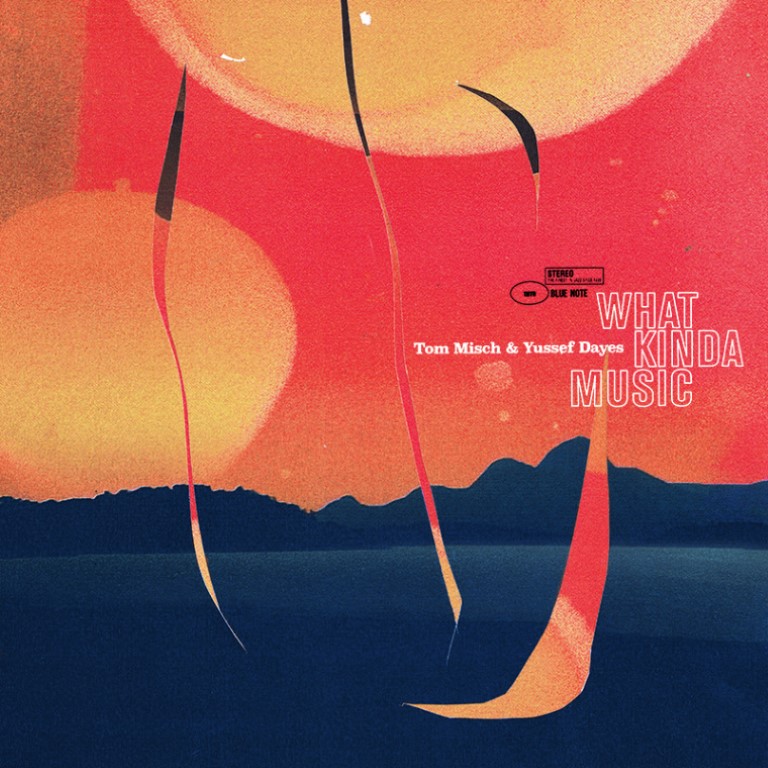
‘What Kinda Music’ album review
By Matthew Fraser, Opinions Editor
London has been the birthing ground to a number of intriguing artists and sounds over the years; recently, two names have reason to the top of a deep and ever evolving talent pool. Yussef Dayes has solidified his place as an excellent drummer and wizard behind the boards. Between productions for other musicians (including a spot on Kehlani’s newest album) and his work in jazz bands like Yussef Kamaal, Dayes has kept himself busy. Tom Misch on the other hand has made his mark mostly in indie music despite his jazz guitar background. With an NPR Tiny Desk Concert with over 10 million views under his belt, Misch is a force to be reckoned with. What Kinda Music is the soundscape unification of these two young British dynamos.
The title track opens with a dreamy guitar arpeggio leading into Dayes’ omnipresent kick drum; soon Misch joins in, alternating between a haunting wordless croon to match the floating synths and violins—and a simple ode to comfortable loneliness. The dark atmospheric sounds of the title track lead nicely into the more Radiohead-esque “Festival.”Once again Misch uses his vocals to gently carry the melody along.
Next up is the Freddie Gibbs assisted “Nightrider.”Though better known for his street wise mafioso raps, Gibbs lays (comparatively) low on this smoother, more RnB style cut. Dayes and Misch layer subtle shifts and breaks into the song to transform it into a sultry cruise through the night to a destination unknown.
The clack of a wood block leads “Tidal Wave” into your ears, Misch follows shortly thereafter in a halting and sorrowful form—singing first of love lost, chaos, and finally the tears that follow an ended relationship. Dayes plays the congas and percussion to build a sound that both propels and matches the sorrow of Misch’s guitar. “Sensational”follows as a brief Curtis Mayfield inspired psychedelic funk interlude, notable in its own right without aiming to shift the overall energies of the album thus far. “The Real” follows with hazy guitars and another booming kickdrum; the sound turns to a more traditionally old-school hip-hop sound and swagger.
“Lift Off” uses an atmospheric feedback hum to set the stage for the reverb drenched guitar and propulsive drumming. The bass line directs and morphs the song between its freer jam band theme and its harder edge but not-quite-aggressive alternative. Misch’s guitar alternates between soloing monologues and melody recaps in a series of smooth waves.
In some ways “I Did It For You” is the most forgettable song on the album, but it certainly isn’t a bad song. Instead, it is somewhere just above the average free flowing and breezy summer radio song. “Last 100” uses a piano melody to add flavor and accentuate the tight drumming of Dayes.
“Kyiv”opens up with what sounds like a movie director urging his crew to get the final take right to close the day. A heavily effects laden rhythm guitar holds steady while Dayes twists and bends the drums into whatever variations and fills he finds suitable to the task. Misch’s understated playing remains cool and present while allowing all of the other sounds to hold their place in this organic soundscape.
“Julie Mangos”feels like three interludes stitched together, starting with a dreamy conversation about fruit and what one man believes to be the best mangoes of all. The song progresses into its second form, a neo-funk bounce underpinned by a vocal sample from what sounds like a phone call. In the third act of this song, Dayes flexes his mastery of the drum kit while Misch plays a hypnotic rhythm guitar.
The final track of the album “Storm Before The Calm” sees Misch and Dayes calling in British saxophonist Kaidi Akinnibi for assistance. Between the digital bass sounds, synth, and stellar work of both Dayes and Misch, one feels that the album has come to an acceptable close.
Best songs:
“Nightrider”
“The Real”
“Lift Off”
“Kyiv”

